Southwark West (UK Parliament constituency)
Southwark West was a parliamentary constituency centred on the Southwark district of South London. It returned one Member of Parliament to the House of Commons of the Parliament of the United Kingdom.
| Southwark West | |
|---|---|
| Former Borough constituency for the House of Commons | |
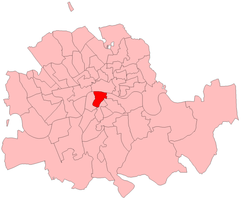 Southwark West in London | |
| 1885–1918 | |
| Number of members | one |
| Replaced by | Southwark North |
| Created from | Southwark |
The constituency was created for the 1885 general election, and abolished for the 1918 general election.
Members of Parliament
| Election | Member | Party | |
|---|---|---|---|
| 1885 | Arthur Cohen | Liberal | |
| 1888 by-election | Richard Causton | Liberal | |
| 1910 | William Dunn | Conservative | |
| 1910 | Edward Strauss | Liberal | |
| 1918 | constituency abolished | ||
Elections
| Decades: |
Elections in the 1880s
| Party | Candidate | Votes | % | ± | |
|---|---|---|---|---|---|
| Liberal | Arthur Cohen | 2,851 | 52.2 | N/A | |
| Conservative | Augustus Beddall | 2,611 | 47.8 | N/A | |
| Majority | 240 | 4.4 | N/A | ||
| Turnout | 5,462 | 70.2 | N/A | ||
| Registered electors | 7,776 | ||||
| Liberal win (new seat) | |||||
| Party | Candidate | Votes | % | ± | |
|---|---|---|---|---|---|
| Liberal | Arthur Cohen | 2,566 | 51.1 | -1.1 | |
| Conservative | Augustus Beddall | 2,453 | 48.9 | +1.1 | |
| Majority | 113 | 2.2 | -2.2 | ||
| Turnout | 5,019 | 64.5 | -5.7 | ||
| Registered electors | 7,776 | ||||
| Liberal hold | Swing | -1.1 | |||
Cohen resigned, causing a by-election.
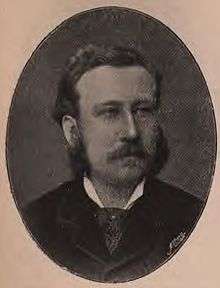
Causton
| Party | Candidate | Votes | % | ± | |
|---|---|---|---|---|---|
| Liberal | Richard Causton | 3,638 | 59.8 | +8.7 | |
| Conservative | Augustus Beddall | 2,444 | 40.2 | -8.7 | |
| Majority | 1,194 | 19.6 | +17.4 | ||
| Turnout | 6,082 | 73.3 | +8.8 | ||
| Registered electors | 8,296 | ||||
| Liberal hold | Swing | +8.7 | |||
Elections in the 1890s
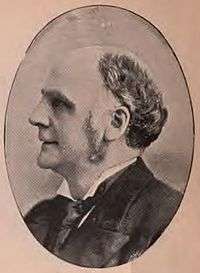
Bond
| Party | Candidate | Votes | % | ± | |
|---|---|---|---|---|---|
| Liberal | Richard Causton | 3,534 | 60.6 | +9.5 | |
| Conservative | Edward Bond | 2,295 | 39.4 | −9.5 | |
| Majority | 1,239 | 21.2 | +19.0 | ||
| Turnout | 5,829 | 72.4 | +7.9 | ||
| Registered electors | 8,048 | ||||
| Liberal hold | Swing | +9.5 | |||
Causton was appointed a Lord Commissioner of the Treasury, requiring a by-election.
| Party | Candidate | Votes | % | ± | |
|---|---|---|---|---|---|
| Liberal | Richard Causton | Unopposed | |||
| Liberal hold | |||||
| Party | Candidate | Votes | % | ± | |
|---|---|---|---|---|---|
| Liberal | Richard Causton | 2,989 | 51.0 | -9.6 | |
| Conservative | Frederick William Horner | 2,870 | 49.0 | +9.6 | |
| Majority | 119 | 2.0 | -19.2 | ||
| Turnout | 5,859 | 72.2 | -0.2 | ||
| Registered electors | 8,113 | ||||
| Liberal hold | Swing | -9.6 | |||
Elections in the 1900s
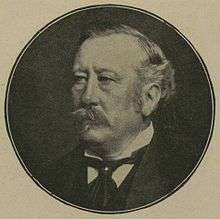
Causton
| Party | Candidate | Votes | % | ± | |
|---|---|---|---|---|---|
| Liberal | Richard Causton | 2,893 | 51.1 | +0.1 | |
| Conservative | Alfred Newton | 2,763 | 48.9 | -0.1 | |
| Majority | 130 | 2.2 | +0.2 | ||
| Turnout | 5,656 | 71.2 | -1.0 | ||
| Registered electors | 7,945 | ||||
| Liberal hold | Swing | +0.1 | |||
| Party | Candidate | Votes | % | ± | |
|---|---|---|---|---|---|
| Liberal | Richard Causton | 3,057 | 54.1 | +3.0 | |
| Conservative | Arthur Salter | 2,592 | 45.9 | -3.0 | |
| Majority | 465 | 8.2 | +6.0 | ||
| Turnout | 5,649 | 79.9 | +8.7 | ||
| Registered electors | 7,066 | ||||
| Liberal hold | Swing | +3.0 | |||
Elections in the 1910s
| Party | Candidate | Votes | % | ± | |
|---|---|---|---|---|---|
| Conservative | William Dunn | 3,387 | 51.2 | +5.3 | |
| Liberal | Richard Causton | 3,223 | 48.8 | -5.3 | |
| Majority | 161 | 2.4 | N/A | ||
| Turnout | 6,610 | ||||
| Conservative gain from Liberal | Swing | +5.3 | |||
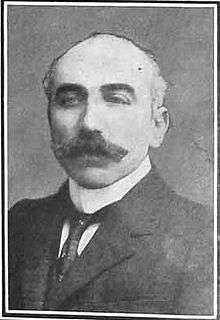
Strauss
| Party | Candidate | Votes | % | ± | |
|---|---|---|---|---|---|
| Liberal | Edward Strauss | 3,028 | 50.1 | +1.3 | |
| Conservative | William Dunn | 3,010 | 49.9 | -1.3 | |
| Majority | 18 | 0.2 | N/A | ||
| Turnout | 6,038 | 74.9 | |||
| Liberal gain from Conservative | Swing | +1.3 | |||
General Election 1914/15:
Another General Election was required to take place before the end of 1915. The political parties had been making preparations for an election to take place and by the July 1914, the following candidates had been selected;
- Liberal: Edward Strauss
- Unionist:
gollark: Oh yes, that is true actually.
gollark: This is empirically false given graduate income statistics.
gollark: Their course *is* substantially cooler-sounding than the other ones.
gollark: I'm not even utterly sure if I want to go to Oxford (or Imperial) since they apparently are very hard work, and many of my useful* skills come from having had lots of free time to do whatever.
gollark: I see.
References
- Craig, FWS, ed. (1974). British Parliamentary Election Results: 1885-1918. London: Macmillan Press. p. 49. ISBN 9781349022984.
- Debrett's House of Commons, 1886
This article is issued from Wikipedia. The text is licensed under Creative Commons - Attribution - Sharealike. Additional terms may apply for the media files.